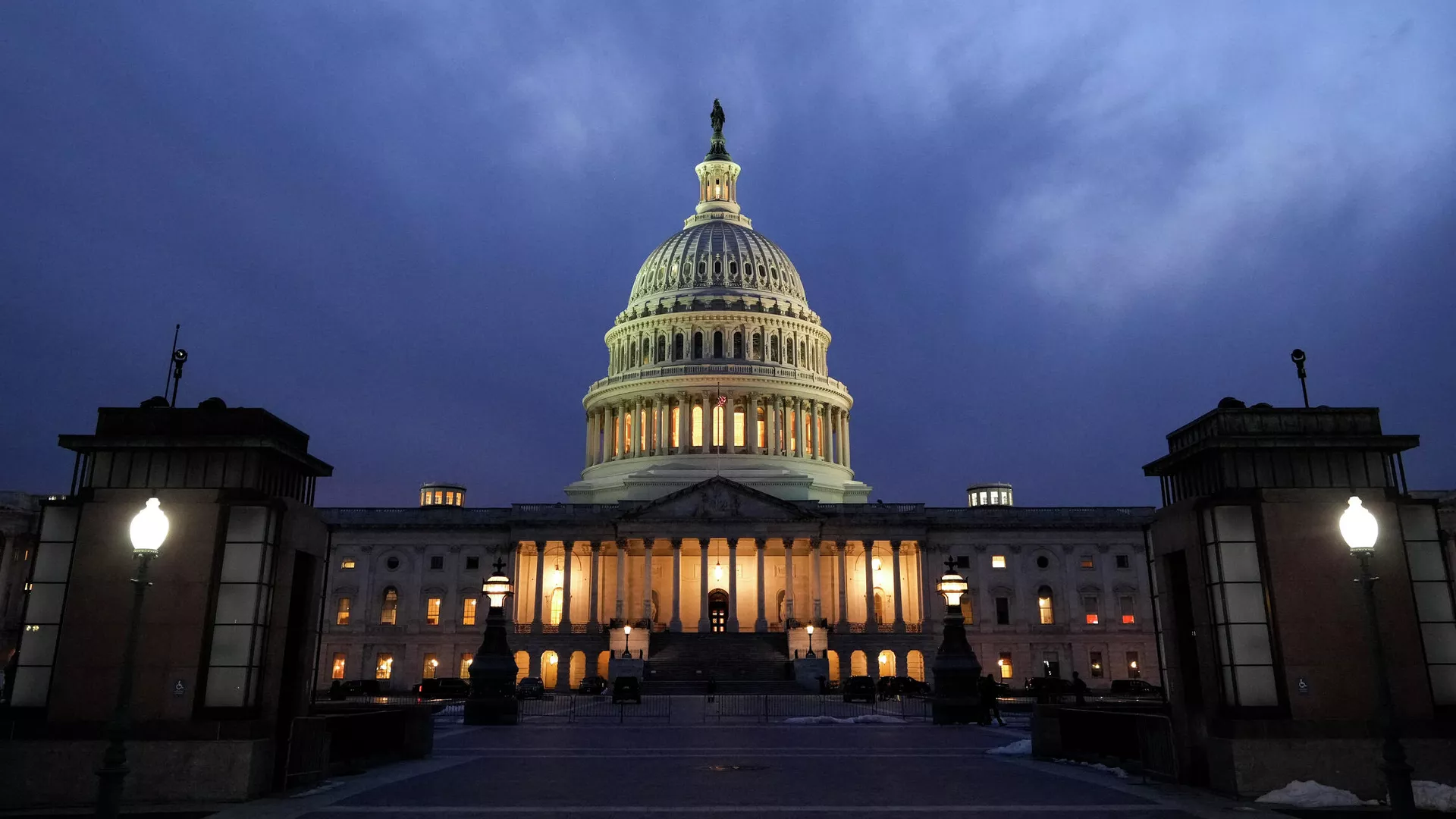Congress Close to Deal on COVID-19 Bill One-Third Smaller Than Package Cut From Spending Bill
20:03 GMT 04.04.2022 (Updated: 13:29 GMT 06.08.2022)

© DREW ANGERER
Subscribe
Disagreements in the US Congress over how to fund COVID-19 relief measures have blocked some bills from passing for months at a time, with Republicans claiming adding to the deficit will drive inflation and Democrats countering that withholding aid would hurt the economy even more.
According to reports, US lawmakers on Monday were close to a deal to fund another COVID-19 response bill after it was cut from a previous spending bill. However, this package is about one-third smaller than before.
The deal, to be announced on Monday, will include about $10 billion in funding for therapeutics, tests, vaccines, and other supplies, according to the Washington Post. Trimmed from the bill is about $5.6 billion, which would have funded those same efforts abroad.
The pandemic aid package had originally been part of a massive $1.5 trillion federal spending bill that Congress passed on March 9, but it was cut from that bill in order to avoid ongoing disputes about the international aid component. The bill was necessary to fund the federal budget through September, but also contained $14 billion in emergency military and humanitarian aid for Ukraine.
While daily new COVID-19 cases nationwide remain at their lowest point in almost a year, lawmakers are under pressure to finalize a new aid deal prior to beginning a two-week recess on April 9. Last week, the US Centers for Disease Control and Prevention (CDC) announced that the BA.2 subvariant of Omicron had become the dominant strain of COVID-19 in the United States, but was not causing a notable net increase in cases nationwide.
Dr. Anthony Fauci, the director of the National Institute of Allergy and Infectious Diseases, predicted that the raging outbreak of BA.2 in Western Europe would likely cause an uptick in US infections, but is not likely to be severe enough to force the return of safety restrictions, such as mask-wearing. A February study by the Institute for Health Metrics and Evaluation at the University of Washington in Seattle has also suggested that 73% of Americans are now immune to the Omicron variant.
Still, the Biden administration authorized a second COVID-19 vaccine booster shot last week for US adults over 50 years old or who have compromised immune systems, which US President Joe Biden acknowledged will require more money. He has sought $22.5 billion.
"If we fail to invest, we leave ourselves vulnerable if another wave hits," Biden said on March 30 at an event to launch covid.gov, a government information website about living with the virus. Biden got his second booster shot at the event.
Even Biden’s ask for funding pales in comparison to the massive spending bills from earlier in the pandemic, including the $1.9 trillion American Rescue Plan Act he signed into law in March 2021 and the $2.2 trillion CARES Act signed by then-US President Donald Trump in March 2020, weeks after the pandemic was declared.
